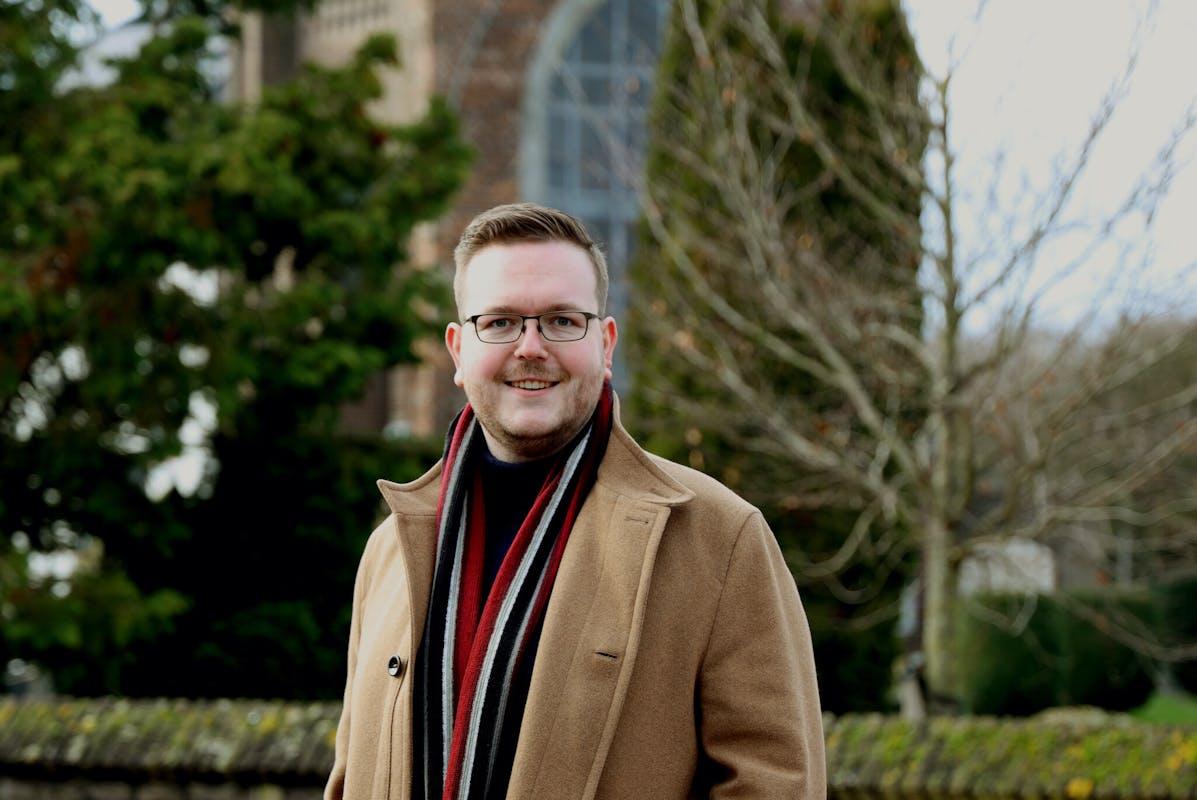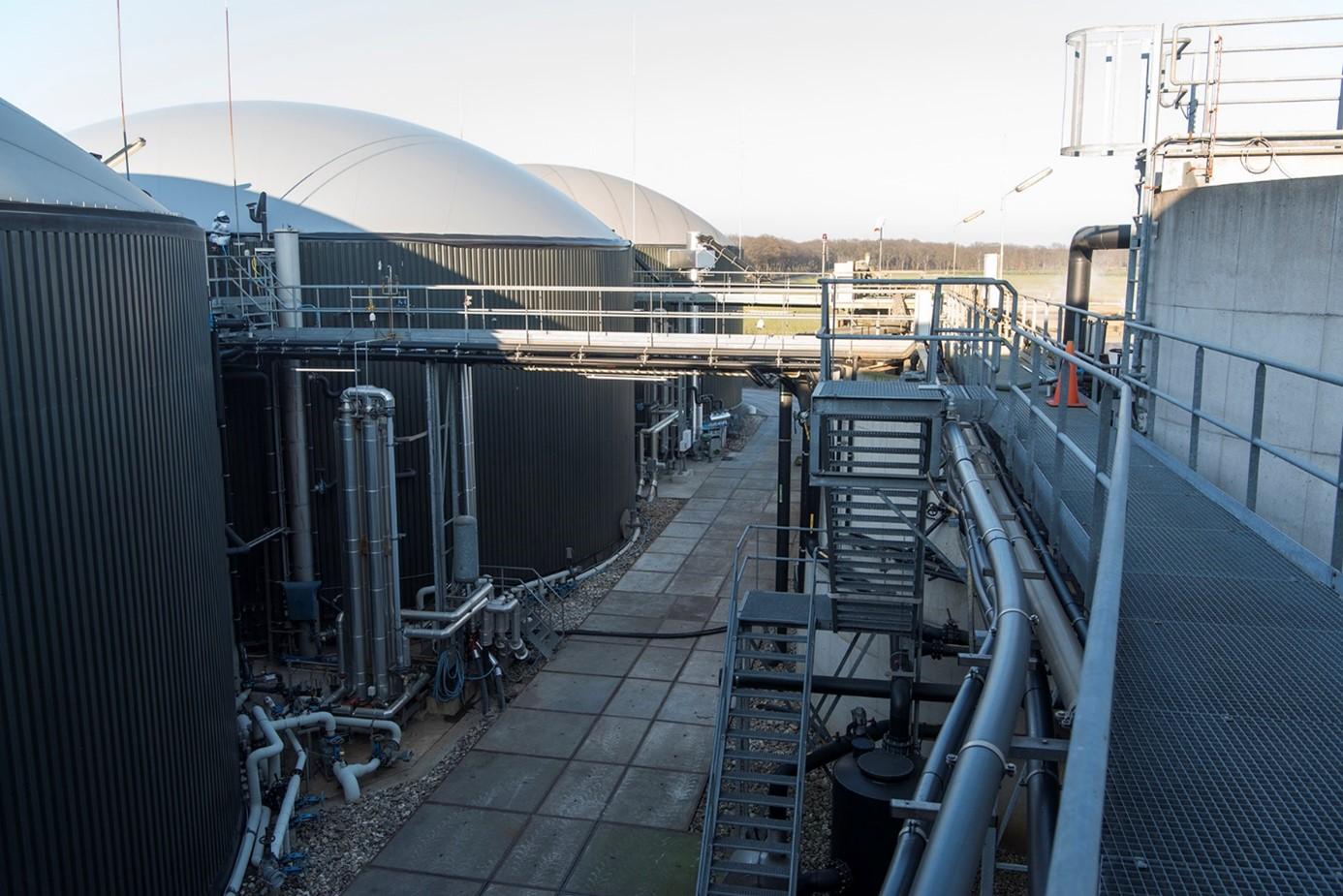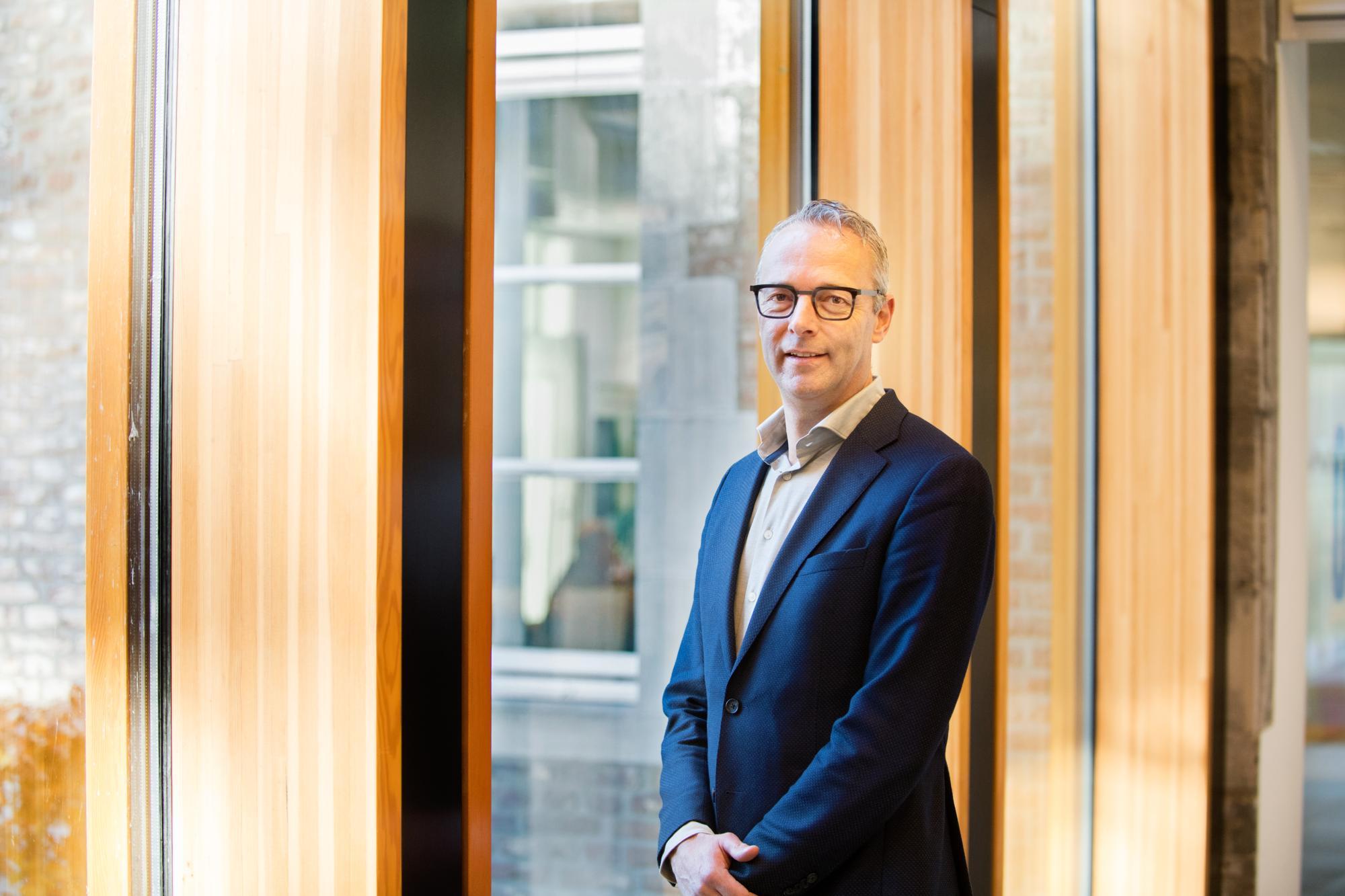"Agriculture is an important part of the solution"
By our partner LLTB
The North and Central Limburg region is working hard to make energy supplies more sustainable. Municipalities and the agricultural sector are increasingly working together on this. An important pillar in that cooperation is the production of green gas with area-based manure processing, which was explored last year at the head of North Limburg. This was at the initiative of Alderman Rodoe of the Mook and Middelaar municipality.
Holger Rodoe, alderman for Sustainability, Nature and the Environment of the municipality of Mook and Middelaar, and administrative leader for green gas within the Regional Energy Strategy (RES) North and Central Limburg, is a great advocate of green gas. "Green gas offers a realistic alternative for sustainable energy generation, especially in areas where large-scale wind or solar farms are difficult to fit in, for example because of nature reserves and built-up areas. Like with us in northern Limburg.'
'We have to look for solutions here that fit in with the landscape and the environment,' he continues. 'Green gas fits in well with that. Moreover, the existing gas infrastructure offers opportunities to implement the energy transition in a feasible and affordable way. We have a fantastic network lying in our country, let's take advantage of it.'

Creating added value
The alderman first came across green gas three years ago when he went to take a look at GroenewoudGas' manure digester in Sint-Oedenrode, Brabant. 'That visit made a big impression. It's not just a matter of "we have too much manure and we want to do something with it." From his background as an environmental planner, he immediately saw the link between the benefits of producing green gas. 'There is a manure surplus and you can start spreading that on the land, or start looking at what we can do with it. How can we get added value out of it? And that's where I saw that very well. I see how green gas with area-based manure valorization can contribute not only to local energy transition, but also to the solution of other societal issues such as nitrogen reduction, improvement of soil surface and soil water quality and, finally, housing.'
According to Rodoe, it all has additional positive effects. Green gas production can also contribute to the issue of green CO₂. 'Green gas not only contributes to our energy supply, but also helps to reduce CO₂ emissions. The link with green CO₂ is interesting, but requires care - especially when it comes to certificates and offsets. For me, it is important that the climate gains really happen in practice, not just on paper.'
In addition, with green gas we also preserve that we see the cows having fun in the pasture. Agriculture is anything but the problem in this, but rather an important part of the solution.'

Exploration
The RES was once created nationwide to look at solar and wind energy. 'We had to change that mindset a bit so that everyone was open to green gas, but now the topic is firmly embedded and a roadmap has been created.' This stems from an exploration that was started last year and recently completed. The alderman was the initiator of this. The LLTB was the trigger for the exploration in the four municipalities and carried it out together with Groenewoudgas and Enter Next Level. Among other things, research was conducted into the availability of manure and natural gas consumption in the region, embedding, costs and benefits, suitable locations and conditions that must be met in order to realize the production of green gas. Several parties and municipalities have committed to the exploration. In addition to the municipality of Mook and Middelaar, Gennep, Bergen and Berg en Dal are also participating. 'I am pleased that there is now potential in the four municipalities to start production, but we need the farmers. It is therefore good that we are having the conversation, because I can tell them how good green gas is, but the agricultural entrepreneurs have questions. Questions that I cannot answer, but the LLTB, for example, can. The LLTB has therefore made an important contribution to this exploration and the studies. That cooperation and support of each other is very important.' Meanwhile, 72 farmers in the four municipalities have expressed an interest in producing green gas during the exploration.
In the meantime, the municipality has not been idle and has itself started looking at how the production of green gas can be realized in northern Limburg, including mapping locations. 'Here we have to look at, for example, infrastructure, truck movements, distance from nature and residential areas, the amount of manure. It is a package deal that is certainly possible and has a lot of potential.'
Multiple sites in 2030
Full of enthusiasm, the alderman continues. 'I really want to start realizing the implementation and locations. The desire is to have about 5 or 6 locations in this region by 2030. That what I have seen in Sint-Oedenrode will also come to Gennep or Venray, for example. And that I can take the residents of the participating municipalities with me, show them what is happening and dispel any doubts they may have. That the production of green gas really becomes something of the region and of everyone who lives, works and lives in it.' Support is also growing from the province of Limburg. The recently published plans of the Provincial Energy Services Company (PEM) include an investment of thirty million euros for the development of green gas, with the aim of realizing fifteen to twenty fermentation plants in the coming years. 'That is an ambition that fits exactly with what we want in North and Central Limburg,' Rodoe said.
Perspective for the future
He believes it is important that farmers have the opportunity to participate. 'The agricultural sector needs future prospects. I have deep respect for the entrepreneurs who make the choice to participate in the stoppers schemes, but I hope that as few farmers as possible will quit and we keep a stable agricultural sector in the region.'
'Fortunately, I also see that the interest among young farmers to continue is remarkably high. There really is a generation that wants to move forward and is open to innovation. Green gas can become a stable source of income without companies having to give up their core business. Moreover, the livestock will then be partly preserved and farmers will contribute directly to making their environment more sustainable.'
Avoid getting bogged down in bureaucracy
A major challenge involved in the plans for green gas production, according to Rodoe, lies not so much in the technology, but in the procedures. 'Permit processes and regulations make the realization of digesters complex and time-consuming. We are therefore trying to create space for this type of initiative within municipal and provincial environmental visions. This prevents projects from getting bogged down in bureaucracy later on.' Creating support among residents also remains an important issue. 'But if people can see with their own eyes what production entails, how it works and what it can mean for them and the sustainability of their environment, I am convinced that we will get citizens on board.'
In addition to the production of green gas, thought is also being given to setting up local energy communities. Rodoe sees a lot of potential in this. 'From the exploration we looked at how we can shape this, but that will follow in the next phase. But when residents can participate or benefit financially from an installation, support grows. That principle already works with wind and solar farms, and it can work just as well with green gas. He therefore advocates allowing local energy revenues to flow back into the local community as much as possible, for example through lower energy rates or support for village projects.
Limburg leads the way
Rodoe emphasizes that Limburg really is one of the frontrunners in the field of green gas production. 'In The Hague people regularly say, 'Call Limburg if you want to know more about green gas.' That says something. For him, then, it is clear that the region is fully committed to this form of renewable energy in the coming years. 'I really see this as the future. It is an opportunity for agriculture, for the living environment and for the energy transition. If we take advantage of it together, we will really make it work in Limburg."

LLTB Energy Vision
The LLTB prepared an energy vision for the coming years two years ago. This contains the opportunities that the agricultural sector has to contribute to the energy transition. 'Farmers and horticulturists are and will really be an indispensable link in this transition,' says Fons Kersten, LLTB chief executive and portfolio holder for Energy and Climate. 'Certainly the production of green gas can make an enormous contribution and is a feasible, realistic option that we need to pursue now.' According to Kersten, the exploration done in northern Limburg shows well the positive effects green gas offers. 'Research shows that mono-manure fermentation can produce millions of cubic meters of green gas annually. In the four participating municipalities alone, some 2,200 homes can be heated with this.
This cuts both ways, because mono-manure fermentation is accompanied by substantial environmental gains. 'As a sector we produce circular green gas, and at the same time we reduce our emissions by transporting the manure smoothly to the digester. This gives 55 percent less ammia emissions and 90 percent less methane emissions from the barn. It also contributes to animal welfare in the barn. So it's win-win, and by doing it collectively all livestock farmers can participate, including those with fewer animals in their stalls. Mono-manure fermentation is therefore also an instrument that fits in with the area-oriented approach around natura 2000.
Kersten emphasizes that a collaboration such as this, in which municipalities, the sector and partners from the chain, pull together, is essential. 'As a sector alone, we cannot make a turnaround in the transition, we need each other. The goals set by Holger Rodoe fit seamlessly with those of the LLTB. 'How wonderful would it be if in a few years' time we could supply whole (newly built) neighborhoods with green gas from a number of fermentation plants, achieve the targets set around emission reductions and still see cows walking in the meadow? That's not easy, but it is possible!"
For more information and for the LLTB's energy vision, visit www.lltb.nl.